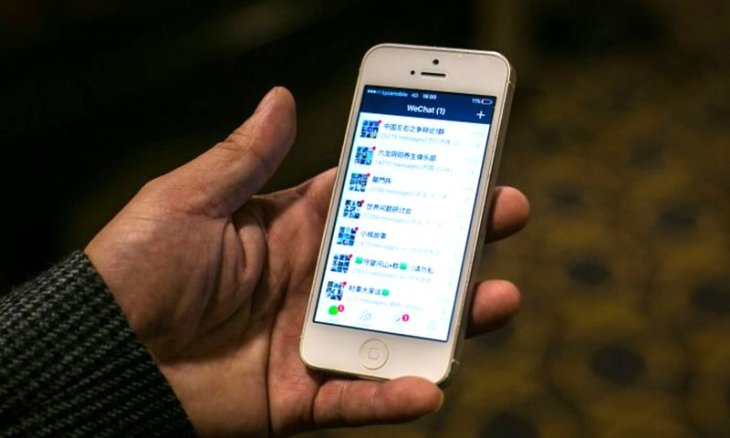More than 30 Crores Private Messages From China Were Exposed Online
Jyotis - Mar 06, 2019
![]()
Gevers even uncovered more shocking news: the data was transmitted from the main database to 17 other servers in remote distances.
- Huawei Demands A 50% Cut On Tencent Mobile Game Sales, Removing All The Titles From Its App Store
- 95% Of iPhone Users in China Would Ditch Their iPhones If WeChat Is Banned
- Kuo: Global iPhone Shipments Might Drop By 30% Due To WeChat Ban
On March 02, more than 30 crores private messages from China were exposed online on a variety of messaging apps. The information was revealed by Victor Gevers, a security researcher of the GDI Foundation. The Financial Times reported that there have been 3640 lakhs cases concerning recorded personal identities of users which were available to any other user who searched for the IP address.

In addition, each of these records taken from QQ or WeChat also included other vital information such as GPS data, photos, ID numbers, or addresses. Gevers even uncovered more shocking news: the data was transmitted from the main database to 17 other servers in remote distances.
The data was seemingly sent to these servers of various police stations in many provinces and cities. This could be realized via numerical codes.
![]()
Moreover, these records included some addresses from internet cafes. That means they might derive from gamers who loved playing at cafes. Chinese officials have censored these kinds of cafes and even, they also require them to install apps to follow the browsed data by their users.
The leak was first detected when Gevers used a search engine called Shodan to monitor devices. The engine is designed to search for all devices that are connected with the Internet. On March 02, he had a talk on the exposed private messages with ChinaNet Online who specializes in providing internet services in China. After some hours, the provider locked all of the databases.
This is not the first time the Chinese government has monitored or applied similar measures to manage conversations among its internet users. In addition, tech firms in the country often offer terms of use concerning collecting users’ data via websites and apps.
For example, WeChat which is the most prominent social media application in China says to its users that it will “comply with applicable laws and regulations” when gathering user data. However, not all support and believe what the tech companies say. Li Shufu, a prominent businessman, thought that Ma Huateng, the CEO of Tencent, “must be watching all our WeChats every day.” Of course, WeChat didn’t accept these accusations.

Additionally, anyone can access the information. That is what makes us extremely surprised. While revealing the leak of private messages to the Chinese ISP, Gevers also offered tips to enhance the security level for the information.
Featured Stories

ICT News - Feb 19, 2026
Escalating Costs for NVIDIA RTX 50 Series GPUs: RTX 5090 Tops $5,000, RTX 5060 Ti...

ICT News - Feb 18, 2026
Google's Project Toscana: Elevating Pixel Face Unlock to Rival Apple's Face ID

Mobile - Feb 16, 2026
Xiaomi Launches Affordable Tracker to Compete with Apple's AirTag

ICT News - Feb 15, 2026
X Platform Poised to Introduce In-App Crypto and Stock Trading Soon

ICT News - Feb 13, 2026
Elon Musk Pivots: SpaceX Prioritizes Lunar Metropolis Over Martian Colony

ICT News - Feb 10, 2026
Discord's Teen Safety Sham: Why This Data Leak Magnet Isn't Worth Your Trust...

ICT News - Feb 09, 2026
PS6 Rumors: Game-Changing Specs Poised to Transform Console Play

ICT News - Feb 08, 2026
Is Elon Musk on the Path to Becoming the World's First Trillionaire?

ICT News - Feb 07, 2026
NVIDIA's Gaming GPU Drought: No New Releases in 2026 as AI Takes Priority

ICT News - Feb 06, 2026
Elon Musk Clarifies: No Starlink Phone in Development at SpaceX
Read more

Mobile- Feb 17, 2026
Anticipating the Samsung Galaxy S26 and S26+: Key Rumors and Specs
The Samsung Galaxy S26 series is on the horizon, sparking excitement among tech enthusiasts.

ICT News- Feb 18, 2026
Google's Project Toscana: Elevating Pixel Face Unlock to Rival Apple's Face ID
As the smartphone landscape evolves, Google's push toward superior face unlock technology underscores its ambition to close the gap with Apple in user security and convenience.

ICT News- Feb 19, 2026
Escalating Costs for NVIDIA RTX 50 Series GPUs: RTX 5090 Tops $5,000, RTX 5060 Ti Closes in on RTX 5070 Pricing
As the RTX 50 series continues to push boundaries in gaming and AI, these price trends raise questions about accessibility for average gamers.

Mobile- Feb 16, 2026
Xiaomi Launches Affordable Tracker to Compete with Apple's AirTag
For users tired of ecosystem lock-in or high prices, the Xiaomi Tag represents a compelling, no-frills option that delivers core functionality at a fraction of the cost.
Comments
Sort by Newest | Popular